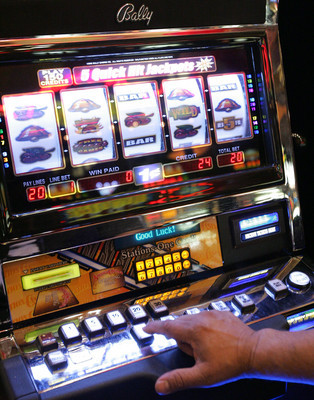Report predicts tougher times for casino industry

The economic slowdown has the casino industry facing its toughest challenge since the months following the Sept. 11, 2001, terrorist attacks, according to a report released Friday by a leading Wall Street bond rating house.
New York-based Moody’s Investors Service’s report said several factors are combining with the “economic slowdown and possibility of a long-term, consumer-based recession” to negatively affect the industry.
“Declining disposable income of potential customers and increasing travel costs are lowering overall visitation and spending per visit in many gaming markets,” said the report’s author, Keith Foley, Moody’s vice president and senior credit officer.
However, the report concludes that longer-term fundamentals of the casino industry remain favorable: an increase in the industry’s key demographic base of 45- to 65-year-old customers, major challenges to competitors trying to enter the industry, and rapid advances in gaming technology.
The report’s release came on Good Friday, a day when the New York Stock Exchange and other financial markets are closed for Easter weekend.
Many analyst and gaming finance executives were not available for comment.
Boyd Gaming Corp. spokesman Rob Stillwell said the report is in line with what the company has been telling investors the past few months.
“We acknowledged these are tough economic conditions,” he said. “In spite of that, our operating units have been doing pretty well. That said, we have also maintained the fact that this is a short-term challenge and that the longer-term fundamentals remain favorable.”
Stillwell points to Boyd’s ongoing construction projects as a sign that the company is in a strong position for continued growth.
Boyd Gaming is working on a $130 million hotel expansion of the Blue Chip riverboat in Indiana and the Water Club and a $400 million expansion to the company’s Borgata resort in Atlantic City.
It is also working on the $4.8 billion Echelon, a mixed-use development on the Strip scheduled to open in late 2010.
The worldwide tourism industry experienced a dramatic decline in travel after the terrorist attacks in 2001. Las Vegas casinos laid off an estimated 15,000 workers, with thousands more being put on reduced work hour schedules.
In February, MGM Mirage, Harrah’s Entertainment and Station Casinos and some smaller local gaming companies acknowledged that the current economic downturn has forced staff reductions and loss of hours at some properties. However, none of the companies has given hard numbers on the number of employees effected.
“As in other consumer-based leisure industries like lodging and cruises, a decline in disposable income … combined with an increase in the cost of travel results in lower overall visitation and spending per visit,” Foley wrote in the report.
The slowing economy comes while gaming companies throughout the country are dealing with various challenges, such as increasing competition and smoking bans.
Several states reported gaming revenue declines in January, including 4.7 percent in Nevada, 10 percent in New Jersey, 17 percent in Illinois, 8 percent in Indiana and less than 2 percent in Louisiana, Missouri and Iowa.
“The amount and type of competition, along with the amount of capital investment needed to compete effectively, have increased substantially since 2001,” Foley wrote.
The various challenges may have a benefit for consumers as the economic slowdown leads “to further increases in promotional activity across most major markets as gaming operators compete more aggressively to maintain visitation and market share.”
Lenders have been tightening their standards over the past several months and that could hurt the industry in the coming years.
The drop in access to capital has already caused a handful of projects in Las Vegas to be delayed or face financing uncertainties, including the Cosmopolitan, Tropicana, Hooters Hotel, Southern Highlands Resort, Lady Luck and, possibly, The Plaza on the site of the old New Frontier.
Analysts this week said that if banks are lending money at all, it is at a rate three to four percentage points higher than last year.
A slowdown in new projects could hurt longer-term revenue and cash flow rates.
The report also said the recent leveraged buyout activity in the casino industry, including the purchases of Harrah’s Entertainment and Station Casinos by private equity groups, has added to the industry’s vulnerability.
“These two companies … will compete more aggressively than they have in the past in order to generate the cash flow needed to service their substantial debt loads,” Foley wrote.
The corporate offices of Station Casinos, which was taken private by a $5.4 billion management-led buyout in November, were closed Friday for the holiday.
Harrah’s Entertainment did not return a call seeking comment.
The company was bought for $17.7 billion by a joint-venture partnership between private equity firms Apollo Management and TPG Capital in December.
Contact reporter Arnold M. Knightly at aknightly@reviewjournal.com or (702) 477-3893.